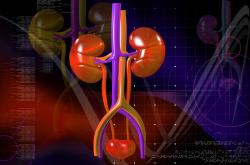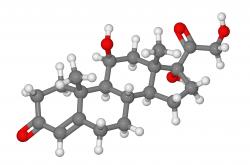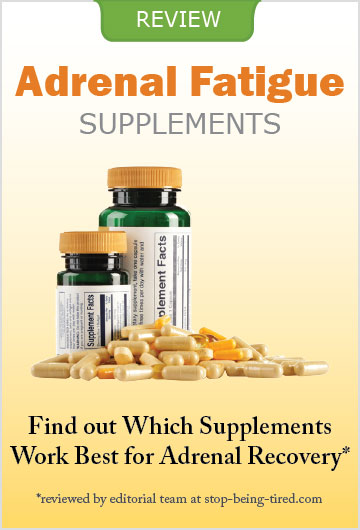Treating Adrenal Fatigue With Replacement Hormones
When natural treatments for adrenal fatigue fail, many people turn to hormone replacement. Supplementing with adrenal hormones has both its pros as well as cons. Learn in which cases synthetic hormones are a good option and when it is best to stay away from hormone supplementation altogether.
It is not just adrenal fatigue patients who need stable levels of adrenal hormones. We all do. Without that stability, any number of negative effects can occur. Still, hormonal dysregulation is one of the key features of adrenal fatigue, and a problem that needs to be addressed in an aggressive manner if patients are to return to health in a reasonable time frame. To accomplish this healing process, doctors have a variety of options available to them.
When Adrenals Can't Heal Naturally
In many instances, physicians and alternative medicine practitioners utilize a variety of natural therapies in an attempt to treat adrenal deficiencies. These include lifestyle changes, stress management techniques, and even herbal remedies. Throughout that process, the goal is to provide the adrenals with nourishment and rest so that they can recover enough to return to some semblance of normal hormonal production.
There are times, however, when that approach is insufficient for the challenge at hand. And when it proves impossible to provide the adrenals with the support they need to produce their own hormones, doctors often turn to the only real option left to them: using replacement hormones to provide the body with the cortisol, DHEA, progesterone, and pregnenolone it needs to operate at peak efficiency.
When to Consider the Hormone Replacement Option?
The problem with leaving hormone production to the adrenals when they are not responding to normal therapies is clear: there are more than fifty individual hormones involved in the hypothalamus-pituitary-adrenal (HPA) axis. If even one of them is in any state of imbalance, there can be severe consequences. For example:
- Increased estrogen can cause anxiety, which can exacerbate fatigue
- Low aldosterone can cause erratic blood flow
- Cortisol dysregulation leads to hypoglycemia and lethargy.
And those are just a few of the most common forms of dysregulation. So, when natural therapies fail, doctors often have little choice but to consider replacing those hormones with some form of synthetic alternative. The key to avoiding side effects is to replace the right hormones, rather than just replacing every hormone that appears low.
Adrenal Fatigue and Hormonal Supplements
The best way to avoid side effects with hormone replacement therapy is to focus on the hormones nearest the top of the adrenal synthesis cascade. Those hormones are called pro-hormones, and are much gentler than the hormones that are found farther downstream in the cascade.
For example, pregnenolone is at the top of the cascade, and serves as the precursor to the others. This pro-hormone is used to synthesize progesterone, cortisol, aldosterone, DHEA, estrogen, and testosterone. Due to the pregnenolone steal, this pro-hormone often sees its production drop as adrenal fatigue sets in, since the body seeks to focus on the other hormones downstream – essentially skipping the middle man in the production process.
Most Commonly Supplemented Adrenal Hormone - Cortisol
For that reason, there are physicians who find it more advantageous to simply supplement with those hormones that are just below pregnenolone in the adrenal cascade. For instance, the use of hydrocortisone – a natural form of the cortisol steroid – to supplement the body’s supply of this critical hormone can be an effective way to provide the stress-fighting hormones that the body needs. Often times, this is the only short-term solution for patients whose adrenals have collapsed.
The dosage is usually kept extremely low, as the most effective treatment involves just enough cortisol to help the body manage stress, but not so much that the adrenals are inhibited from healing and beginning to produce sufficient quantities on their own. If too much is used for too long, the patient can either become unresponsive as a tolerance develops, or may just become dependent on these outside sources of the hormone. Of the two, the latter is the worst possible outcome, since that leads to adrenal atrophy, since the glands no longer have an incentive to resume their natural role.
When done properly, however, cortisol supplementation can help patients recover from cortisol dysregulation, resume more normal sleeping patterns, and have the resources needed to deal with continuing minor stresses. It must be emphasized, however, that this is just a short-term solution. During this process, the adrenal glands are often suppressed, since the supplements effectively replace their natural production. As a result, the goal is to slowly nurse the adrenals back to health even as the supplements help to relieve the production pressure those glands have been experiencing.
Treating Adrenal Fatigue With Precursor Hormone DHEA
When the pregnenolone steal occurs and that precursor hormone is diverted to make stress hormones, the production of other hormones is stifled. That includes estrogen and testosterone. This diversion prevents these sex hormones from being created, which is why adrenal fatigue is typically accompanied by a severe loss of libido. It should be noted that the loss of testosterone usually happens first, with estrogen deficiency occurring later in the fatigue’s progression.
As a precursor hormone itself, DHEA can be used without suppressing the normal functions of the adrenal glands. Because of that, it is often used before physicians resort to cortisol supplementation. Many doctors prefer to use sublingual drops when they administer DHEA, since it is easier to get correct doses in that way. The drops also get absorbed more quickly than either oral supplements or creams.
When effective, DHEA supplements can help to:
- Restore libido
- Reduce inflammation
- Prevent Cognitive impairment that low DHEA can cause
Improving Sleep in Adrenal Fatigue Patients - Melatonin Supplements
There has been some debate in the medical community about the appropriateness of using melatonin supplements for patients experiencing fatigue, and that debate may rage on for some time. What is known at this stage is that melatonin supplements do seem to enable some patients to balance out the circadian rhythm dysregulation that they experience as a result of low cortisol levels. This can help to enable those patients to obtain better sleep and rest, which can reduce the worst effects of fatigue over time.
Melatonin is another of those chemicals that the body produces – this time in the pineal gland that is found in the midbrain region. Melatonin is a key component in the body’s natural sleep-wake cycle, otherwise referred to as the circadian rhythm, and is found in levels that balance out the levels of cortisol over the course of any day. This balance normally sees cortisol levels rising as melatonin levels are falling, and vice versa. Together, cortisol and melatonin work to keep the human body on that natural routine of sleeping when it is dark and rising with the sun.
For most adrenal fatigue patients, melatonin supplements fail to adequately address the primary issues related to increased adrenaline and extremely low cortisol. However, because they can work in the right instances and can assist with sleep in some cases, some caregivers opt for short duration melatonin treatments as a temporary step during the development of a more long-term plan for addressing adrenaline, blood sugar, and problems with the other hormones.
Problem Areas of Hormone Supplementation
Using synthetic hormones in this way can be problematic, however. Take pregnenolone. Once the body has become conditioned to focusing on cortisol production to the exclusion of the pro-hormone, the introduction of new pregnenolone may not have much impact. The body may just take that new supply and immediately turn it into cortisol, thus denying itself the benefits of converting the supplement into other needed hormones. The end result is a wasted effort.
Pregnenolone therapy also has side effects: insomnia, anxiety, headaches, and heart palpitations.
Moreover, with the exception of DHEA, the introduction of all of the other hormones in this way can further suppress natural adrenal hormone production – which is exactly the opposite of the desired effect. The goal should be to temporarily bolster the hormone supply so that the patient can be afforded the opportunity for the adrenals to begin the process of returning to normal production. That is all nullified if the hormones just serve as a hindrance to natural production.
The Best Option For Healing Adrenal Fatigue
Obviously, there are benefits and drawbacks to using hormone replacements to treat adrenal fatigue. As a result, most practitioners agree that replacement therapy should be an option of last resort, with every attempt being made to induce adrenal healing and a resumption of normal, natural hormone production prior to introducing synthetics into the mix. When all else fails, however, these treatments can often be the only real option for patients who might otherwise suffer an even greater health calamity.
You might also be interested in:
- Adrenal Fatigue and Hormone Therapy. http://www.drlam.com/articles/Adrenal_fatigue_and_hormone.asp
- Bioidentical Hormone Replacement. http://adrenalfatiguesolution.com/hormone-replacement/
- Hormone Replacement Therapy. http://www.drlwilson.com/articles/hormone%20therapy.htm
- Melatonin & Adrenal Fatigue. http://www.livestrong.com/article/357790-melatonin-adrenal-fatigue/















.jpg)




Leave a comment